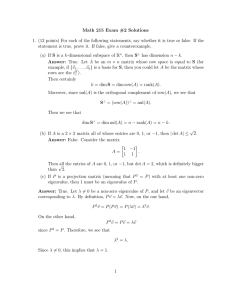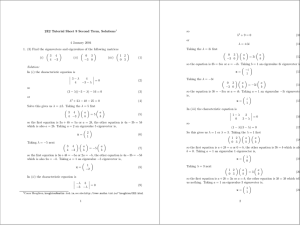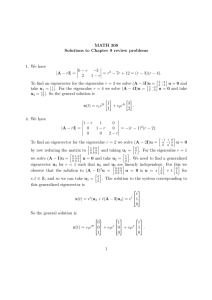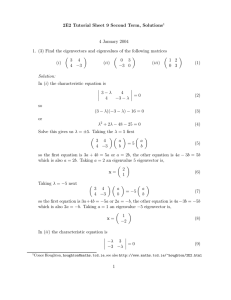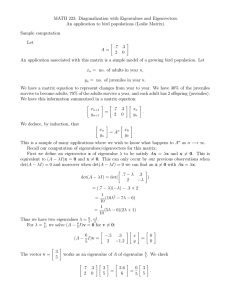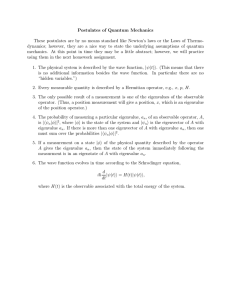Math 222 - Selected Homework Solutions from Chapter 6.1
advertisement
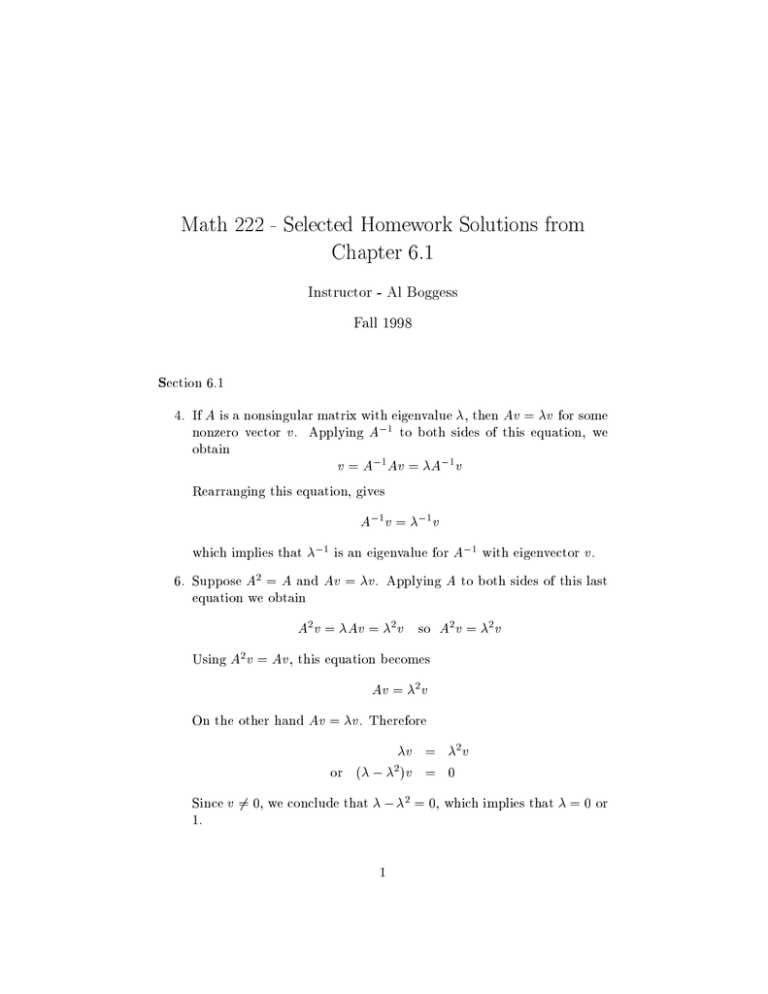
Math 222 - Selected Homework Solutions from Chapter 6.1 Instructor - Al Boggess Fall 1998 Section 6.1 4. If A is a nonsingular matrix with eigenvalue , then Av = v for some nonzero vector v. Applying A,1 to both sides of this equation, we obtain v = A,1Av = A,1v Rearranging this equation, gives A,1 v = ,1v which implies that ,1 is an eigenvalue for A,1 with eigenvector v. 6. Suppose A2 = A and Av = v. Applying A to both sides of this last equation we obtain A2 v = Av = 2v so A2v = 2v Using A2 v = Av, this equation becomes Av = 2v On the other hand Av = v. Therefore v = 2 v or ( , 2 )v = 0 Since v 6= 0, we conclude that , 2 = 0, which implies that = 0 or 1. 1 9. If is an eigenvalue for A, then det(A , I ) = 0 Now the determinant of a matrix equals the determinant of its transpose. So det(A , I ) = 0 as well. The transpose of I is itself, so this equation becomes t det(A , I ) = 0 t Therefore is an eigenvalue for A . A and A may not have the same eigenvectors. For example, let ! 1 2 A = ,1 ,2 t t A has eigenvalue 0 with eigenvector (,2; 1) , but A has eigenvalue 0 with eigenvector (1; 1). t 2 t
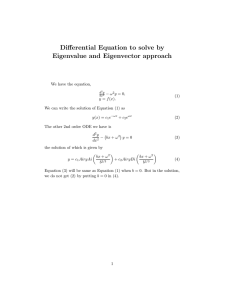
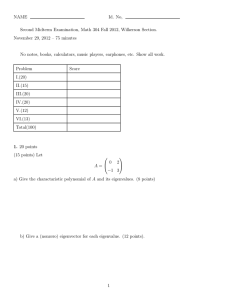
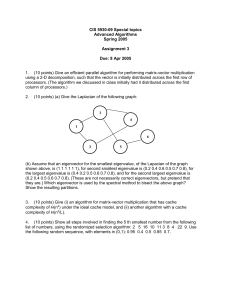
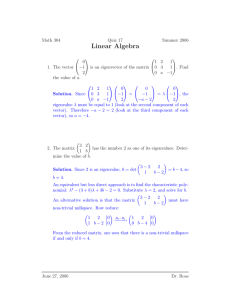
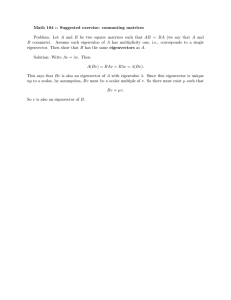
![Math 2280 Section 002 [SPRING 2013]](http://s2.studylib.net/store/data/011890685_1-30cad960ab49ba6c6fc3971f1bb6de74-300x300.png)
